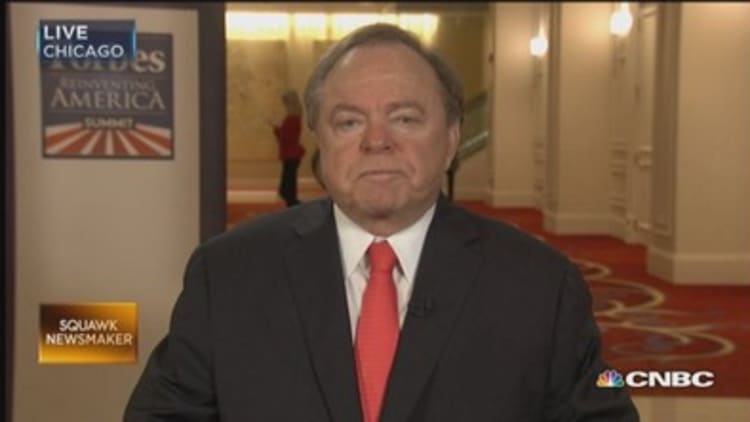
Billionaire oilman Harold Hamm said Thursday that U.S. refineries can't handle all the oil that's being produced domestically.
"Basically, there's 18 million barrels-a-day refinery space and $12 million barrels a day has been set-up for heavy sour crude," which contains a higher percentage of sulfur impurities than U.S.-produced light sweet crude, the founder and chief of Continental Resources said in a CNBC "Squawk Box" interview. "That's doesn't do us any good. We're producing light sweet crude, the best in the world, and we need to get to the refineries in the world that can handle it."
Read MoreThese oil driller stocks could be winners: Analyst
Hamm, a long-time opponent of the decades-old ban on U.S. crude exports, said there are refiners in South Korea, as well as U.S.-friendly countries in Europe and South America, that would be glad to process American crude, but the oil export ban prohibits that.
"Americans consumers ... are paying for that. Right now, the refineries are getting Brent prices, world prices" for their product, he said. "We're out here trying to compete at a discounted price. West Texas Intermediate is right now about $9.50 a barrel less than Brent prices. So we're not on a level playing field at all."
Oil prices, nearly cut in half over the past six months, were helped early Thursday by a slightly weaker dollar, making greenback-traded commodities such as crude more attractive to holders of other currencies. But the dollar index, a measure against a basket of currencies, has increased nearly 25 percent in the past year.
Read MoreThe number to watch for an oil bottom: CNBC Pro
Hamm said he's hopeful the Obama administration will lift the 40-year-old oil export ban, pointing to a meeting Oklahoma's Republican governor, Mary Fallin, had at the White House last month. She said at the time that President Barack Obama was willing to talk about whether to allow U.S. companies to export crude.


